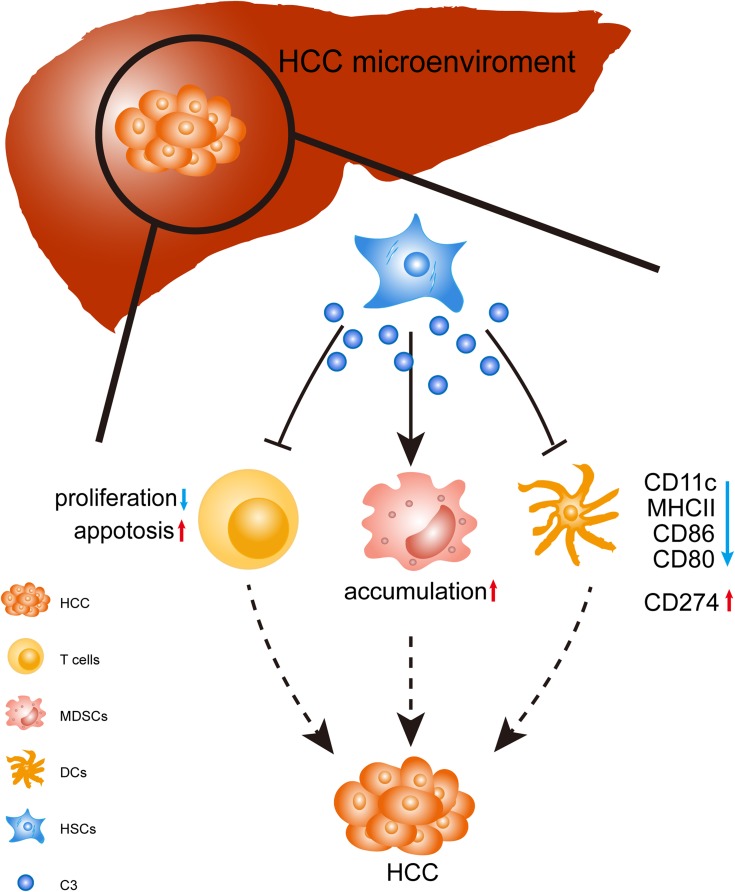Figure 5.
Schematic diagram of the stimulatory effect of C3 produced by HSCs in HCC. In the HCC microenvironment, HSCs produced C3 to induce T-cell apoptosis and reduced the inhibition of CD4+ and CD8+ T-cell proliferation. In addition, HSCs induced MDSCs expansion via C3; HSCs attenuated DC activity through C3 by the decreased expressions of CD11c, CD80, CD86, and MHCII, and slightly increased CD274 expression. HSCs disrupted the immunological balance in HCC, resulting in dominant immunosuppression and tumor progression.

